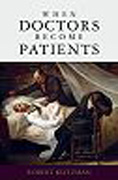
For many doctors, their role as powerful healer precludes thoughts of ever getting sick themselves. When they do, it initiates a profound shift of awareness - not only in their sense of their selves, which is invariably bound up withthe 'invincible doctor' role, but in the way that they view their patients and the doctor-patient relationship. While some books have been written from first-person perspectives on doctors who get sick, never has there been a systematic, integrated look at what the experience is like for doctors who get sick, and what it can teach us about our current health care system and more broadly, the experience of becoming ill. The psychiatrist Robert Klitzman here weavestogether gripping first-person accounts of the experience of doctors who fallill and see the other side of the coin, as a patient. The accounts reveal howdramatic this transformation can be - a spiritual journey for some, a radicalchange of identity for others, and for some a new way of looking at the risksand benefits of treatment options. For most however it forever changes the way they treat their own patients.These questions are important not just on a human interest level, but for what they teach us about medicine today. While medical technology advances, the health care system itself has become more complex and frustrating, and physician-patient trust is at an all-time low. The experiences offered here are unique resource that point the way to a more humane future. INDICE: 1. Introduction; PART I: BECOMING A PATIENT; 2. "Magic white coats": forms of denial and other internal obstacles to becoming a patient; 3. "Themedical self": self-doctoring and choosing doctors; 4. "Screw-ups": external obstacles faced in becoming patients; 5. "They treated me as if I were dead": peripheralization and discrimination; 6. "Coming out" as patients: disclosuresof illness; PART II: BEING A DOCTOR AFTER BEING A PATIENT; 7. Double lens: contrasting views and uses of medical knowledge; 8. "Being strong": Workaholism,burnout, and coping; 9. "Once a doctor, always a doctor?": retirement; 10. Touched by the light: spiritual beliefs and their obstacles; PART III: INTERACTING WITH THEIR PATIENTS; 11. "Us vs. them": treating patients differently; 12. Improving education: can empathy be taught?; 13. Conclusions: the professionalself
- ISBN: 978-0-19-532767-0
- Editorial: Oxford University Press
- Encuadernacion: Cartoné
- Páginas: 333
- Fecha Publicación: 01/01/2008
- Nº Volúmenes: 1
- Idioma: Inglés
